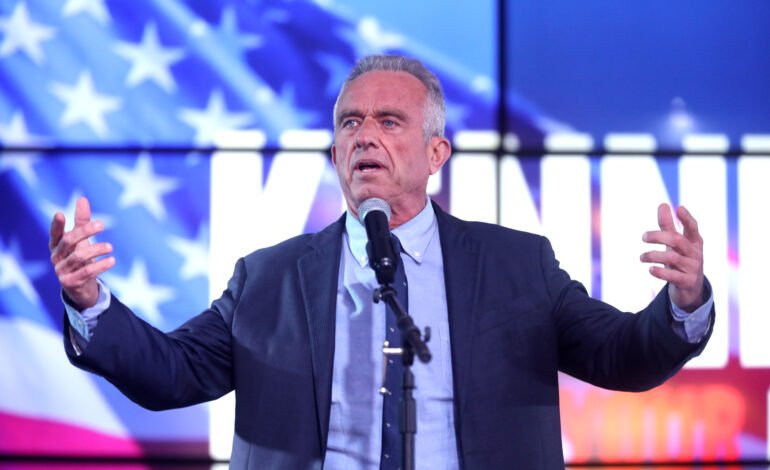Photo by Gage Skidmore, CC BY-SA 2.0, via Wikimedia Commons
Department of Health and Human Services (HHS) Secretary Robert F. Kennedy Jr. (RFK) announced on August 5 that he will cancel contracts and withdraw funding from 22 mRNA vaccine development programs. These 22 programs, worth approximately $1.4T.5 billion, are dedicated to producing vaccines against respiratory diseases like COVID-19.
Secretary Kennedy, a noted vaccine critic, announced the decision by HHS and the Biomedical Advanced Research and Development Authority (BARDA) in a video released on their social networks:
“We reviewed the science, listened to the experts, and acted. BARDA is canceling 22 investments in mRNA vaccine development because data shows these vaccines don't effectively protect against upper respiratory infections like COVID and the flu. We're redirecting those funds toward safer, broad-spectrum vaccine platforms that remain effective even as viruses mutate.”
This decision comes on the heels of a series of adjustments and cancellations made by Secretary Kennedy since his inauguration earlier this year, which have generated criticism and concern from several health professionals. On Monday, June 11, RFK announced the dismissal of all members of the Centers for Disease Control and Prevention's (CDC) Advisory Committee on Immunization Practices (ACIP). Just a few weeks before doing this, RFK announced that the CDC would no longer recommend the COVID vaccine to “healthy young people” and pregnant women.
mRNA Vaccines
Secretary Kennedy's decision applies to programs dedicated to the production of messenger ribonucleic acid (mRNA) vaccines. These types of vaccines work differently than conventional vaccines.
Typically, a viral vaccine involves injecting the patient with a weaker, or benign, version of the virus. This gives the immune system the opportunity to produce antibodies that will defend against the virus in the future.
mRNA vaccines, on the other hand, don't inject the patient with the virus. They inject instructions so the body can form proteins corresponding to the virus, which in themselves are benign. When the patient's immune system detects these foreign proteins, it generates antibodies to destroy them. This way, if the patient contracts the real virus in the future, their body will already be prepared to fight it.
RFK's Reasoning
In the video released by Secretary Kennedy, he explains HHS and BARDA's reasoning for canceling these projects:
“Most of these vaccines are for the flu or COVID-19, but as the pandemic has shown us, mRNA vaccines don't work well against viruses that infect the upper respiratory tract. Here's the problem: mRNA only encodes a small portion of the virus's proteins, usually a single antigen. A single mutation can render the vaccine ineffective.”
The secretary continues with this main message: that mRNA vaccines are ineffective due to their inability to adapt to virus mutations. RFK offers the example of the Omicron COVID mutation: a virus strain that many vaccinated people contracted. The secretary continues:
“But in reviewing the science and consulting with leading experts at the NIH and FDA, HHS has determined that mRNA technology poses more risks than benefits for respiratory viruses.”
Infectious disease experts shared with AP NEWS that mRNA vaccines are safe, and that their development contributed greatly to the fight against the 2020 pandemic. They warn that future pandemics will be more difficult to combat without the help of mRNA vaccines:
“I don't think I've seen a more dangerous decision in public health in my 50-year career.” – Mike Osterholm, infectious disease and pandemic preparedness expert at the University of Minnesota.
The Future of Vaccinations
Secretary Kennedy concludes his message by assuring the public that HHS will continue to invest in the development of vaccination technologies:
“Let me be absolutely clear: HHS supports safe and effective vaccines for every American who wants them. That's why we're moving beyond the limitations of mRNA for respiratory viruses and investing in better solutions.”
Health experts warn of the potential consequences of this shift in HHS research priorities. mRNA technology is used in many aspects of medical research. Its ease and efficiency, compared to traditional vaccines, have made it one of the most promising developments in modern medicine.
For more stories like this, follow More Latin.
Sources:

